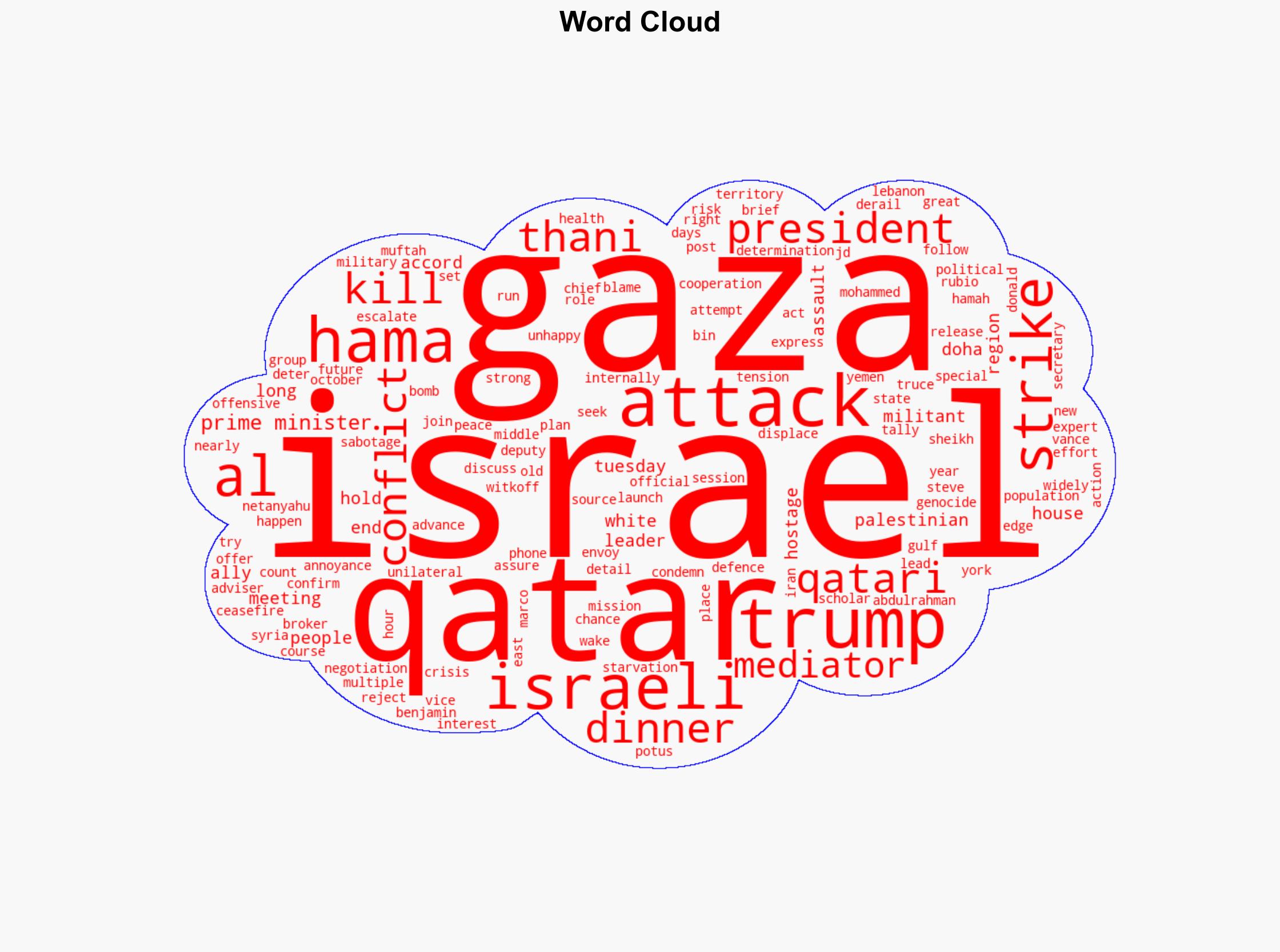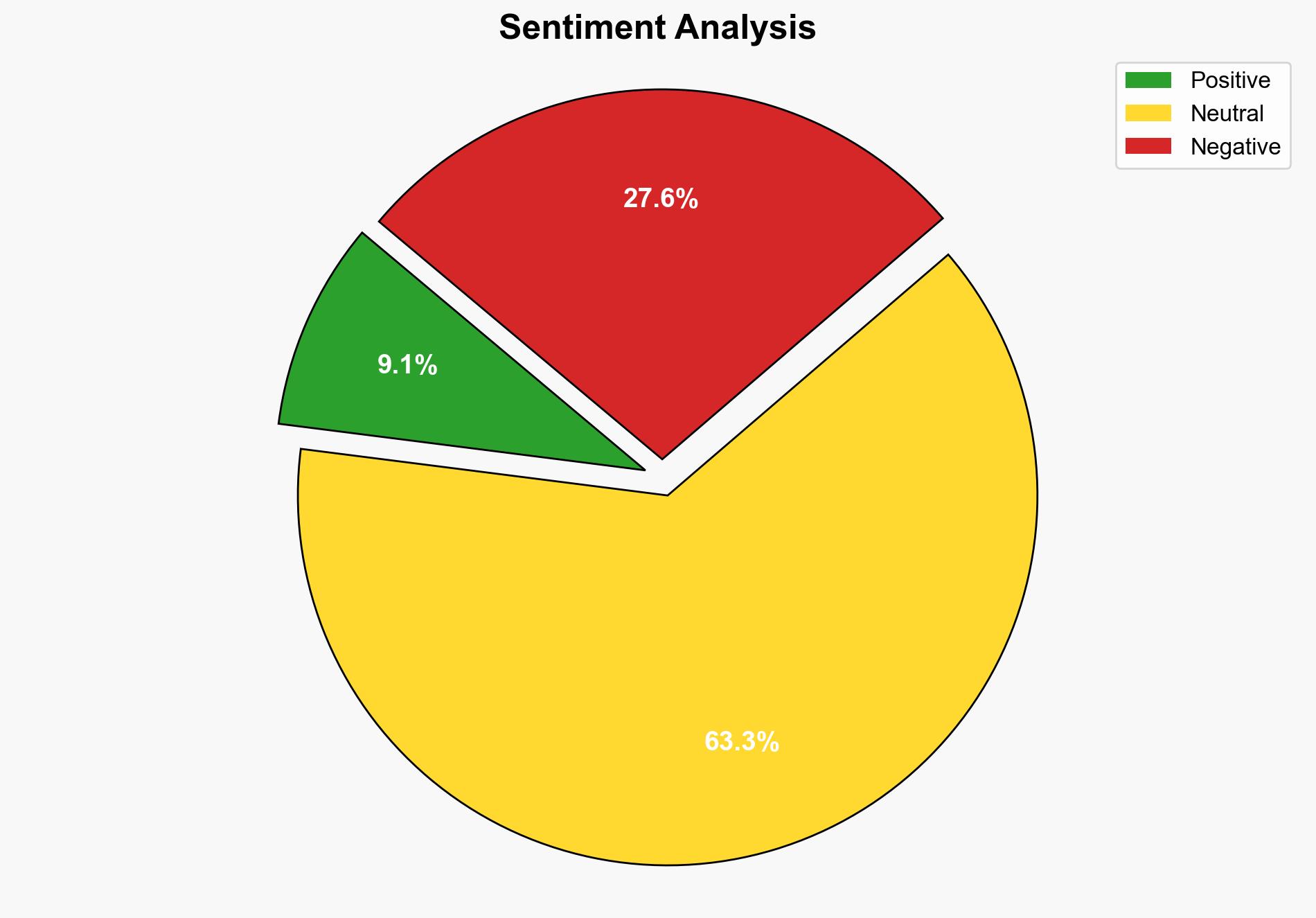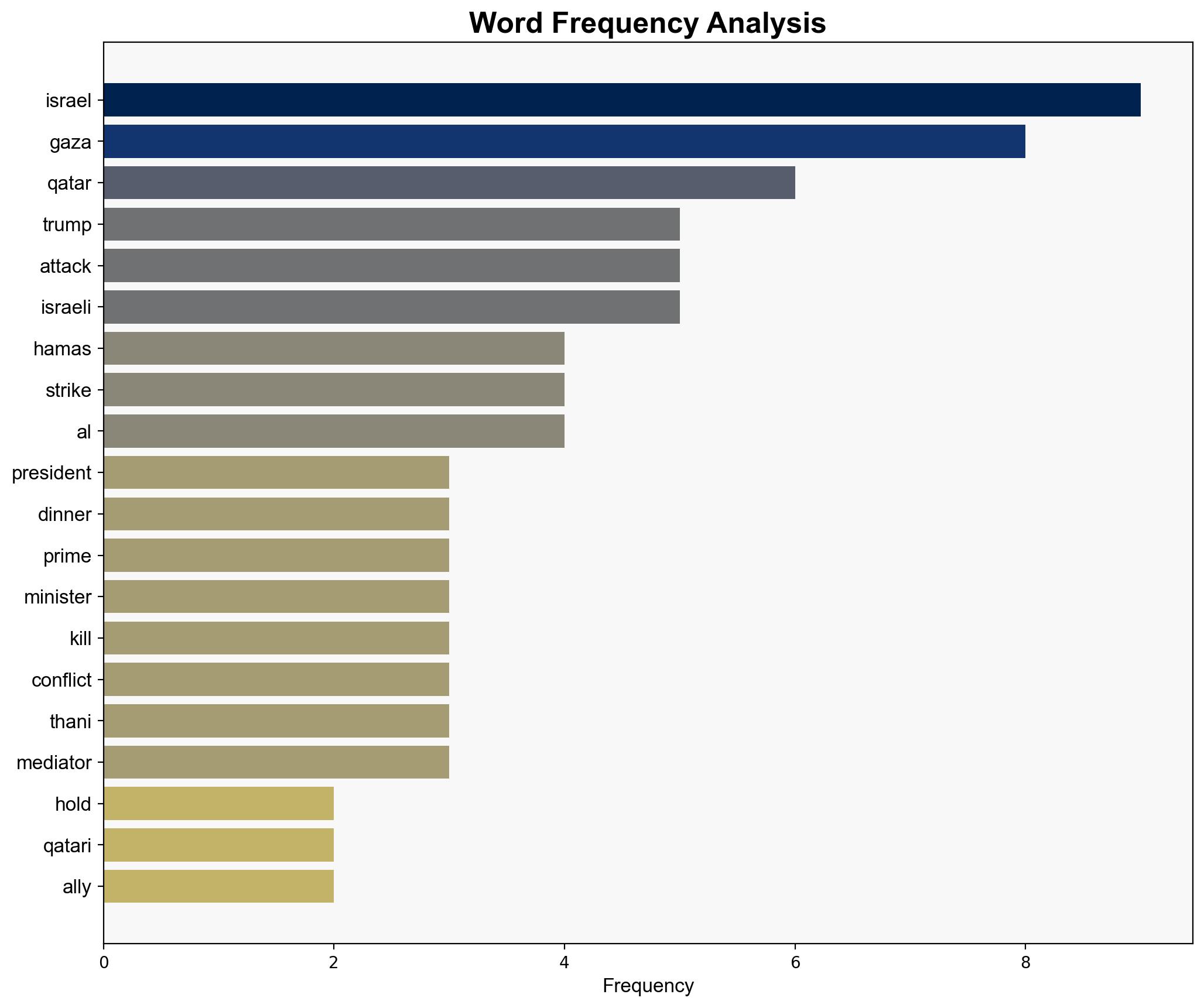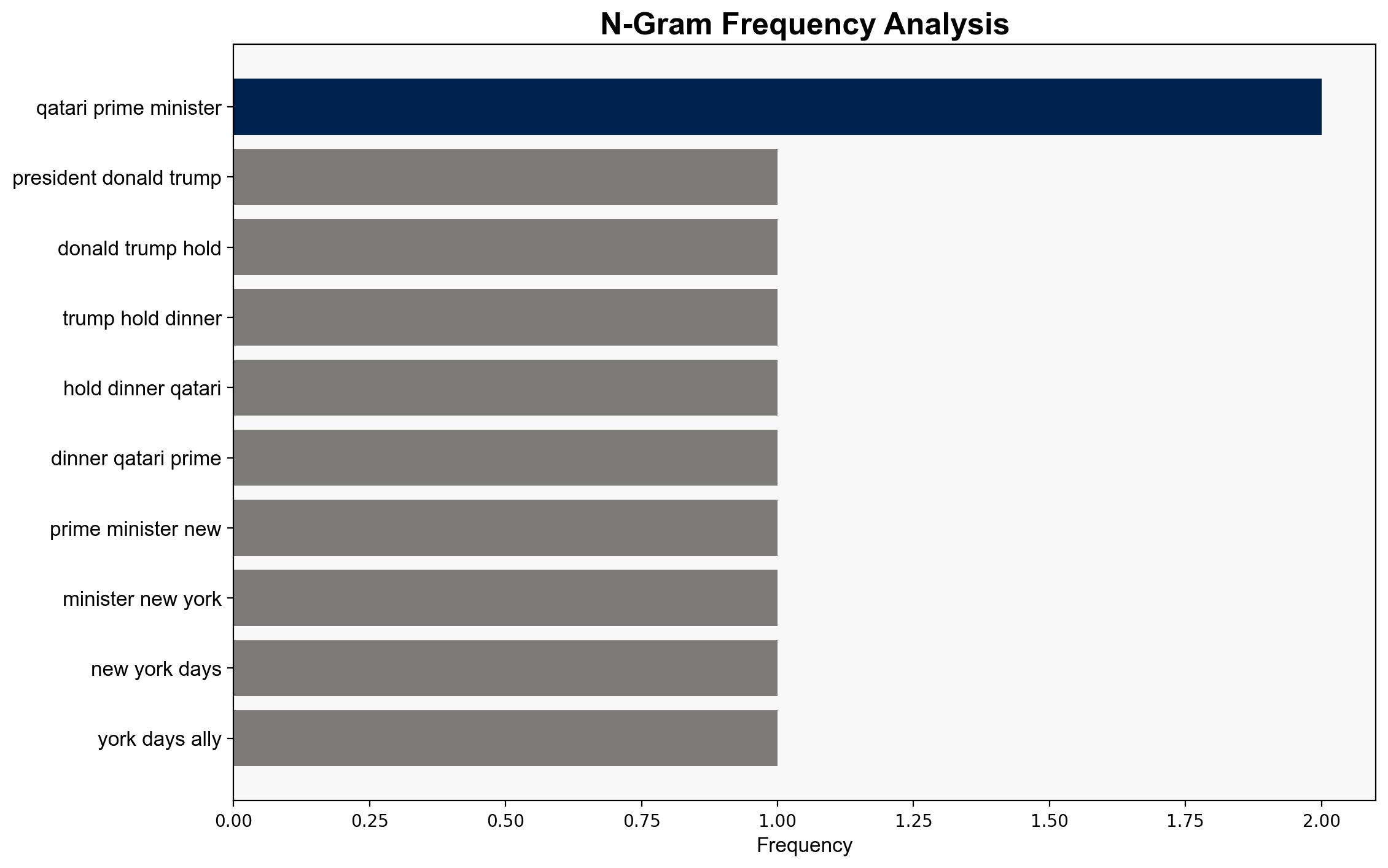Trump hosts Qatari PM after Israeli attack in Doha – RTE
Published on: 2025-09-13
Intelligence Report: Trump hosts Qatari PM after Israeli attack in Doha – RTE
1. BLUF (Bottom Line Up Front)
The most supported hypothesis is that the Israeli attack in Doha was a strategic move to undermine Qatar’s role as a mediator in the Israeli-Palestinian conflict. Confidence level: Moderate. Recommended action: Increase diplomatic engagement with regional stakeholders to stabilize the situation and prevent further escalation.
2. Competing Hypotheses
1. **Hypothesis 1**: The Israeli attack was a deliberate attempt to disrupt Qatar’s mediation efforts in the Israeli-Palestinian conflict, thereby weakening Qatar’s influence in the region.
– **Supporting Evidence**: The attack occurred shortly after Qatar’s involvement in ceasefire negotiations and was condemned by multiple Middle Eastern countries, suggesting a strategic motive to isolate Qatar.
2. **Hypothesis 2**: The attack was a tactical operation aimed solely at eliminating a Hamas leader, with no broader geopolitical intentions.
– **Supporting Evidence**: Israel’s history of targeted operations against Hamas leaders supports this view, and the attack aligns with Israel’s stated security objectives.
Using the Analysis of Competing Hypotheses (ACH) 2.0, Hypothesis 1 is better supported due to the broader geopolitical context and the timing of the attack, which aligns with Qatar’s mediation efforts.
3. Key Assumptions and Red Flags
– **Assumptions**: It is assumed that Israel’s actions are primarily driven by security concerns rather than geopolitical strategy. This may overlook the complexity of regional power dynamics.
– **Red Flags**: Lack of detailed information about the discussions during the dinner between Trump and the Qatari PM. Potential bias in reporting due to political affiliations.
– **Blind Spots**: Limited insight into internal Israeli decision-making processes and potential external influences on their actions.
4. Implications and Strategic Risks
– **Geopolitical Risks**: The attack risks escalating tensions in the region, potentially drawing in other regional powers and destabilizing existing alliances.
– **Economic Risks**: Disruption of diplomatic relations could impact regional trade and investment, particularly in energy sectors.
– **Psychological Risks**: Increased hostility may fuel anti-Israel sentiment, potentially leading to radicalization and recruitment by extremist groups.
5. Recommendations and Outlook
- Engage in multilateral diplomatic efforts to de-escalate tensions and reaffirm Qatar’s role as a mediator.
- Monitor regional alliances and shifts in diplomatic stances closely to anticipate further developments.
- Scenario Projections:
- Best Case: Successful mediation leads to a ceasefire and stabilization of the region.
- Worst Case: Escalation into broader conflict involving multiple regional actors.
- Most Likely: Continued diplomatic tensions with sporadic violence.
6. Key Individuals and Entities
– Donald Trump
– Sheikh Mohammed bin Abdulrahman Al Thani
– Benjamin Netanyahu
– Steve Witkoff
– Hamah Al Muftah
– JD Vance
– Marco Rubio
7. Thematic Tags
national security threats, cybersecurity, counter-terrorism, regional focus




